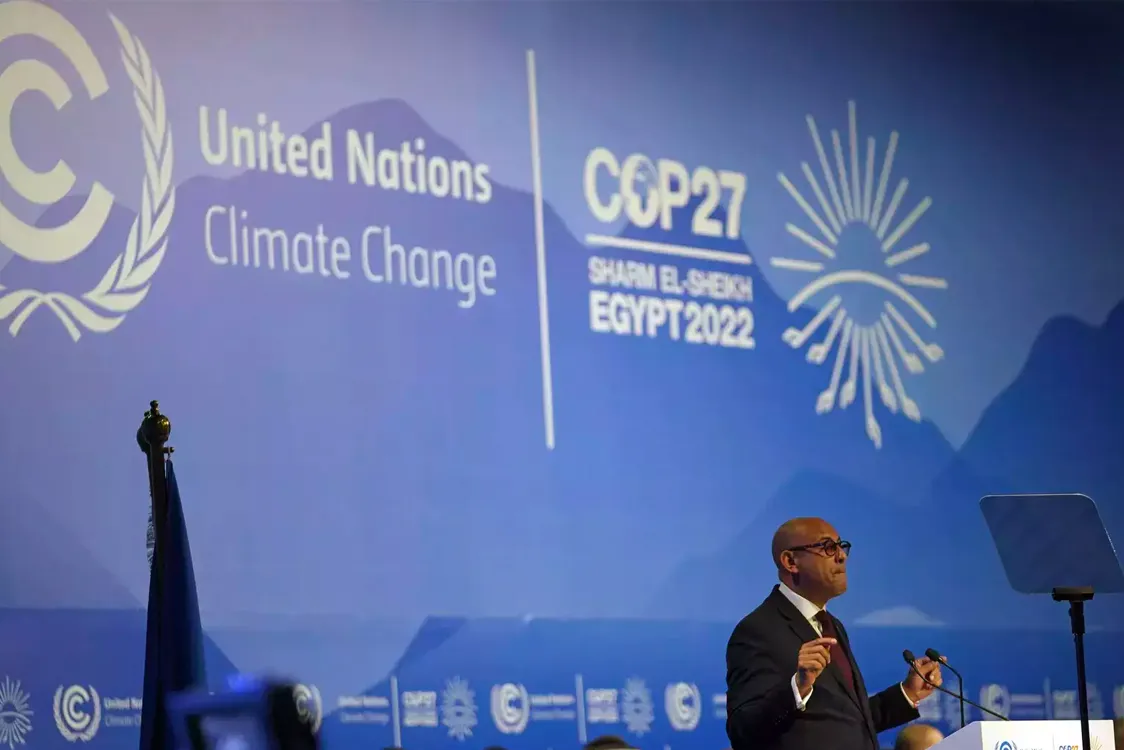Our health depends on the health of the climate surrounding us and these ecosystems are now under threat from deforestation, agriculture, and other land-use changes and rapid urban development,” according to the WHO.
Geneva: The World Health Organization (WHO) issued a sad reminder that the climate crisis is still making people sick and endangering lives and that health must be at the core of these crucial negotiations as crucial climate talks began at COP27 on Sunday.
The four main objectives of mitigation, adaptation, financing and collaboration to address the climate crisis must all be advanced by the conference’s conclusion, according to a statement from WHO which added that the world would need to unite at COP27 and recommit to maintaining the 1.5 °C Paris Agreement goal.
The health threat posed by the climate crisis and the enormous health benefits that would result from more decisive climate action will be at the forefront of discussions, according to the UN agency for health.
According to Dr. Tedros Adhanom Ghebreyesus, Director-General of WHO, “Climate change is making millions of people sick or more vulnerable to disease all over the world, and the increasing destructiveness of extreme weather events disproportionately affects poor and marginalized communities.” Decision-makers and leaders must join forces at COP27 to place health at the center of the negotiations.
Our health is dependent on the health of the ecosystems around us, which are currently threatened by deforestation, agriculture, other changes in land use, and rapid urban development, according to the WHO.
Viruses harmful to humans are more likely to spread from their animal host due to human habitats being infringed upon. Climate change is predicted to result in an additional 250 000 deaths per year between 2030 and 2050 from malnutrition, malaria, diarrhea, and heat stress.
By 2030, it is predicted that the annual direct health damage costs will range between USD 2-4 billion (i.e., excluding charges in health-determining sectors like agriculture and water and sanitation).
Extreme weather conditions that bring intense heatwaves and droughts, devastating floods, and increasingly powerful hurricanes and tropical storms are being brought on by the rise in global temperature that has already taken place. The interaction of these factors indicates that the effect on human health is growing and is likely to quicken.
The WHO urged governments to take the lead in a just, equitable, and quick phase-out of fossil fuels and shift to a future powered by clean energy.
“Additionally, WHO is urging the establishment of a treaty on the non-proliferation of fossil fuels so that coal and other climate-harming fossil fuels can be phased out fairly and equitably. There has also been encouraging progress on commitments to decarbonization. One of the most significant contributions to reducing climate change would be this “It was the ad.
All citizens can help improve human health by promoting more urban green spaces, which help with climate mitigation and adaptation while reducing exposure to air pollution, or by advocating for local traffic restrictions and improving local transportation systems.
According to the WHO, climate policy must now prioritize health and support strategies for reducing climate change that also benefits health. According to the UN agency, “investing in clean energy will yield health gains that repay those investments twice over.”




